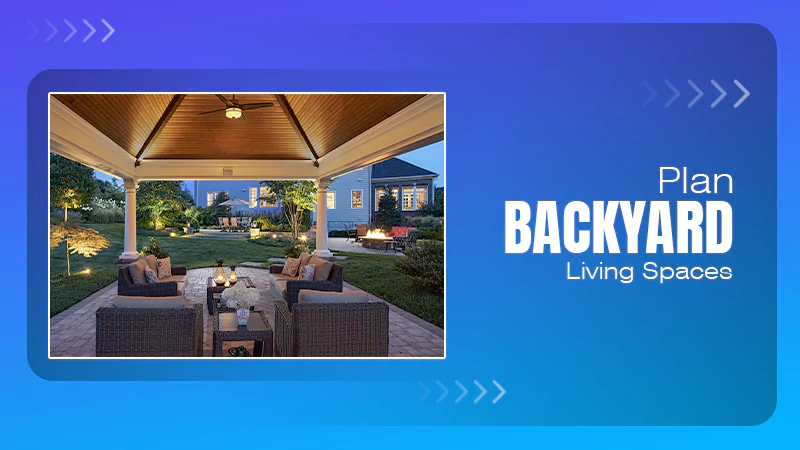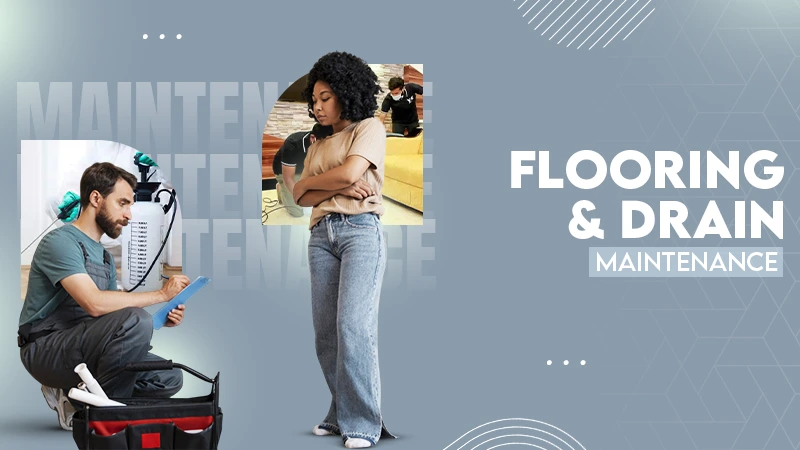KEY TAKEAWAYS
- Start decluttering with intention by focusing on items that add value.
- Build routines based on your lifestyle and repeat them consistently.
- Create separate zones for tasks to reduce clutter and improve focus.
- Track your progress and celebrate small wins to stay motivated long-term.
Did you know that over 54% of Americans are overwhelmed because of clutter and don’t know what to do with it? Finding a lost watch becomes such a chaotic task when things are not organized, so what should be done?
Let’s just be honest that sometimes doesn’t matter how hard you try to keep your home organized, it stays messy and that ruins your mood, right? It’s not that you are not doing anything, it’s just you don’t know how to do it.
So, to keep your home on track, I’m here with organization tips that actually work. Let’s get started.
Declutter with Purpose: Simplify Your Space, Clear Your Mind
Decluttering with intention is more than just cleaning up a mess. It is the act of creating an environment that aligns with your dreams and mindset. Engage with your home by firstly examining what you use and what is consumed.
From there, you can consciously discard items without feeling guilty about it. You can sort the unneeded items by space or room in your home, but you don’t have to be rigid about it if you don’t want to. Just make sure you are asking yourself if an item adds any value or if it adds clutter.
Clean, organized surfaces will help with your focus. Clean, organized storage will help minimize daily stress. Label transparent storage containers, and donate unknown items promptly. Do not wait for the “just in case” to lay hold of you.
Set Smart Routines: Build Habits That Stick
Developing smart routines is essential for establishing organization and balance at home. Start with simple and realistic habits based on your daily rhythm, such as making a bed every morning or spending 10 minutes every evening to tidy up.
Use whatever methods work for you: calendars and reminders, habit tracking apps, etc. Whenever possible, link similar tasks in a set of a logical flow, such as checking email after breakfast or doing laundry on specific days.
Don’t strive for perfection; focus on repetition and small progress. Over time, these routines will become automatic, helping you manage your responsibilities much more effectively, while creating a feeling of organization in your living space. Below, you can see some other useful habits.

Use Zones: Designate Spaces for Every Task
Having defined zones in your home can save time in your daily movements and reduce the stress of clutter. You can even designate a location for things like work or relaxation or reading or exercise, or making things so that everything has a home and a job. A clearly defined zone allows you to focus better.
Also, more importantly, to limit distractions. For example, if you have a corner of your room where all work things go, it will help when separating your work and sleep/relaxation area. Keep work items all together, unless, of course, you actually prefer to work on the couch.
The same goes for your technical gadgets like phones, tablets, etc. You could use upper bins or bins on shelves, or barriers to help maintain those zones. Maintaining designated zones can help you get your work, creativity, or even time to relax, while making it easier to stay on task.
Go Digital: Tools and Apps That Keep You Organized
By making use of digital organization tools, you’ll be surprised at how differently you will be able to stay organized in your home. Calendar apps, like Google Calendar and Notion, allow you to schedule what tasks you are going to do, set reminders based on the schedule you create, and even block time and create routines.
To-do list apps, such as Todoist and Microsoft To Do, allow you to note daily responsibilities and long-term goals. Digital storage platforms, such as Google Drive or Dropbox, allow you to keep your important documents safe, secure, and accessible on any device, anywhere.
You can even utilize family shared calendars and meal planning apps to manage household duties. By switching to a digital organization, you can eliminate paper waste, stay organized, take control of your tasks and time, and your space!
Stay Accountable: Track Progress and Celebrate Wins
Being accountable is a better strategy to sustain your motivation and sustain long-term organization for your home. Start small with establishing meaningful goals and progress regularly, with tracking whether it is a dedicated habit tracker, journal, or app.
Breaking down larger tasks into small, simple steps allows you to consistently celebrate your achievements, regardless of how small you may think that win is. Involve a friend or family member to share your goals, which can build a sense of support and encouragement
Being aware of what you have achieved, like a cleared closet or an everyday morning routine, builds confidence and helps keep you motivated. Accountability is the bridge between intention and action and supports creating lasting habits.
PRO TIP : Use a weekly “reset day” to reorganize and prepare for the week ahead!
Final Words
Home and lifestyle organization isn’t achieved through perfection, but rather by creating systems that align with your lifestyle. But purposefully decluttering, setting smart routines, and making functional spaces.
Using digital resources and generating accountability, we can create a home environment that not only aligns with our personal goals but also protects our well-being. Change is often incremental; however, all of these small tweaks add up over time.
How should I consider and declutter everything without becoming overwhelmed?
Start out small and think about one drawer/room at a time, and focus on what things you use on a day-to-day basis.
What are digital organization and decluttering tools I can use at home?
Of course, calendar apps and to-do lists, as well as cloud storage. You may want to consider things like a digital calendar, Google calendar, Todoist, or Google Drive to help organize.
How to maintain and keep routines consistent in the long run?
Start small, track your process, do something every day, and enjoy the small wins to develop habits as second nature.


